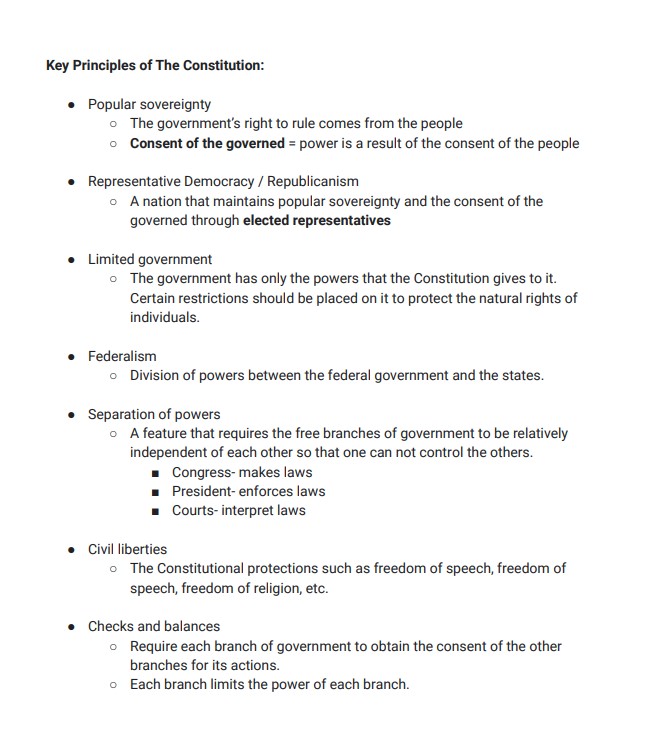AP United States Government and Politics (Grade A+)
Summary:
This AP United States Government and Politics note is a summary of the Foundations of American Democracy, covering important documents such as the Declaration of Independence and the Constitution. It discusses key principles of the Constitution, theories of democracy, and challenges faced by the Articles of Confederation. It also covers the relationship between federal and state governments, different types of powers and responsibilities, functions of government, political participation, policymaking, types of public policies, and democracy’s traditional criteria.
Excerpt:
AP United States Government and Politics
1. 1 Ideal of Democracy
Important Documents:
- The Declaration of Independence
○ An official statement to summarize the colonist’s views.
○ Justifies colonists’ break from Great Britain as well as their declaration of war.
○ Defined reasons for independence - The Constitution
○ Drafted at the Philadelphia Convention
○ The successor of the Articles of Confederation
○ Established federalism
○ Established and defines the Legislative, Judicial, and Executive branches, as well as articles for other political processes (ie. amendment process, national supremacy, etc).
Major Topics:
- Social contract
○ The notion that society is based on an agreement between the government and the governed in which people agree to give up some rights in exchange for the protection of others. Natural Rights.
○ Relationship / mutual agreement between the people and their government. - John Locke and Natural Law
○ John Locke was a philosopher of the enlightenment era
○ Natural Law = a law that believes people are born free and equal
■ Locke defines natural rights as life, liberty, and property.
■ The constitution defines natural rights as life, liberty, and the pursuit of happiness.
■ Protected by the Bill of Rights
Key Principles of The Constitution:
- Popular sovereignty
○ The government’s right to rule comes from the people
○ Consent of the governed = power is a result of the consent of the people - Representative Democracy / Republicanism
○ A nation that maintains popular sovereignty and the consent of the governed through elected representatives - Limited government
○ The government has only the powers that the Constitution gives to it. Certain restrictions should be placed on it to protect the natural rights of individuals.


Reviews